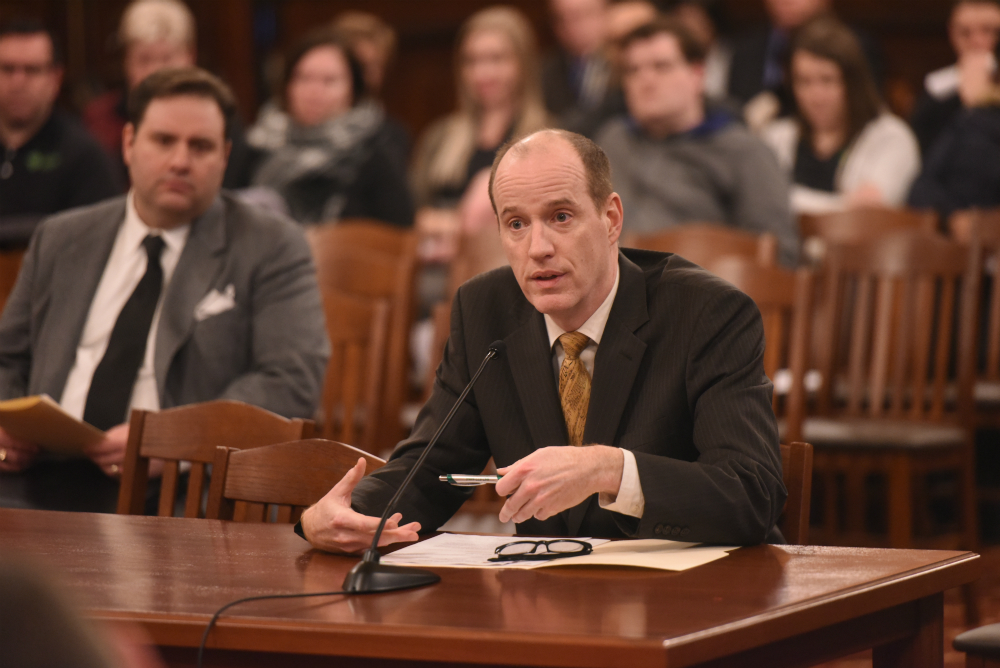
Local participants sought for public health survey
CHICAGO - In response to inquiries from Mount Greenwood and Beverly area medical professionals and concerned residents, the University of Chicago has agreed to bring a comprehensive cancer and chronic disease study to the 19th Ward.
The Chicago Multiethnic Prevention and Surveillance Study (COMPASS) is designed by researchers at the University of Chicago Medicine Comprehensive Cancer Center to understand how lifestyle, healthcare delivery, environment, and genetics affect health.
COMPASS aims to determine why certain population groups in the city of Chicago have higher rates of occurrence of cancer and chronic diseases than others.
"Both medical professionals and elected officials in our area have received numerous inquiries about what seems to be the frequent occurrence of certain cancers in the community," said State Senator Bill Cunningham. “Unfortunately, public health agencies have been unable to reach any conclusive findings on the matter. Having a prestigious research institution like the U. of C. conduct a formal health survey in the community should help end speculation and provide us with some hard data."
Last year, 19th Ward Alderman Matt O’Shea, State Representatives Fran Hurley and Kelly Burke, and Senator Cunningham held a series of meetings with constituents and local medical professionals about the possibility of a “cancer cluster” existing in the area after several children in Mount Greenwood were diagnosed with various forms of cancer.
The meetings spurred a request to the Chicago Department of Health and the Illinois Department of Public Health (IDPH) to conduct a review of reports of cancer in the area. IDPH subsequently conducted and released an "Epidemiological Report" covering Mount Greenwood, Morgan Park, Beverly, Evergreen Park, and Oak Lawn that looked at reports of cancer from 2005 to 2014. IDPH found that there was no evidence to suggest an abnormal number of pediatric cancer incidents in Mount Greenwood or any of the surrounding communities.
However, the IDPH report did find elevated occurrence of breast, lung, and prostate cancer in the area compared to levels reported in Cook County as a whole. The report did not offer any explanation for the increase incidents of those cancers.
"Even though the IDPH report did not find elevated incidents of pediatric cancer, we still have a number of unanswered questions about cancer in our community," Hurley said. "The U. of C. study will examine whether certain behavioral or environmental risks are affecting our health."
Alderman O’Shea credited two local medical professionals, Dr. Moira McQuillan McGee and Brisa Aschebrook-Kilfoy, an epidemiologist at the University of Chicago, with spearheading efforts to formally research cancer occurrences in the area.
“We are lucky to have neighbors who are willing to use their professional training and expertise to protect the health of our community,” O’Shea said. “Without their efforts, the 19th Ward would not have been chosen for this study.”
As part of the COMPASS study, U of C researchers are working in various Chicago neighborhoods to recruit study participants. Eligible participants are asked to complete a specially designed interview (questions about lifestyle, environmental exposure, and medical history), and to provide a blood and urine sample. Radon and drinking water tests in various homes may also be conducted. Participants are also asked to fill out a follow-up questionnaire every two to three years to obtain updated health information.
The goal of COMPASS is not to diagnose cancer among individual participants, but to identifying what behavior and environmental exposure might cause disease across different population sub-groups, which will help U of C to develop new strategies to prevent cancer and other chronic diseases among Chicagoans.
“Thanks to the University of Chicago for dedicating staff and resources for this community study,” said Representative Burke. “We all have friends, family, or neighbors who have battled cancer. I encourage 19th Ward residents to participate in the study. The results could lead to insights and answers on the rates of certain cancers in our neighborhood.”
Anyone interested in participating in the COMPASS survey is encouraged to sign up by sending an email to



